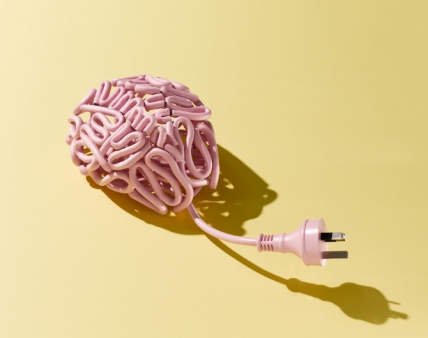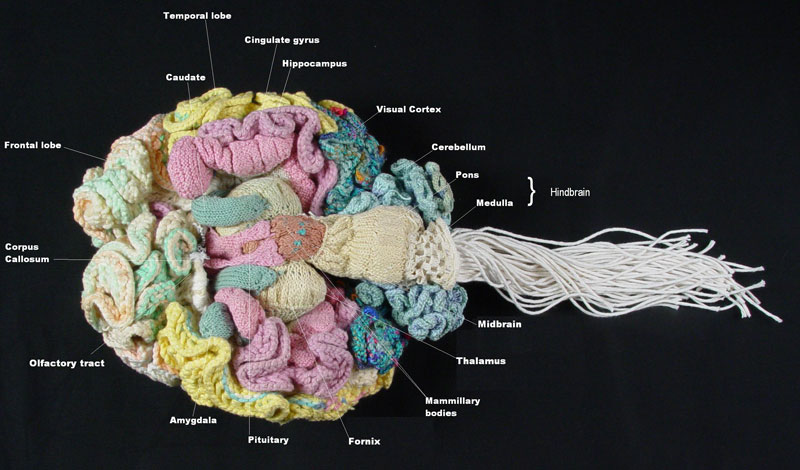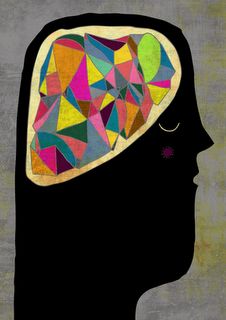The Unconcious Impact Your Mental State Plays In Your Physical Well-Being
Wellness
Wellness

psy·cho·neu·ro·im·mu·nol·o·gy
ˌsīkōˌn(y)o͝orōˌimyəˈnäləjē/
noun: psychoneuroimmunology
(Fancy term for the study of the effect of the mind on health and physical disease states)
Hopefully by now you have come to understand that there is a clear link between your external environment and your inner well-being. External stressors have a direct impact on your mental and physical health.
Yet moreover and perhaps more importantly, we must understand the connection between our emotional states and thoughts and their role in the state of our physical health.
The field of psychoneuroimmunology (PNI) has highlighted the bidirectional correlation between the mind and body-empirically documenting the connection between emotion-processing regions of the brain with the immune and nervous systems and hormone production.

Crochet brain by Dr. Karen Norburg
"Psychoneuroimmunology refers, most simply, to the study of the interactions among behavioral, neural and endocrine (or neuroendocrine), and immunologic processes of adaptation. Its central premise is that homeostasis is an integrated process involving interactions among behavior and the nervous, endocrine, and immune systems." Robert Ader
Why is this important? Because once we understand this link we can understand how vital it is to control our emotions and thoughts and also the implications negative ones can have on our overall physical health. The correlation is bi-directional in that environmental effects changing our immune and endocrine systems in-turn lead to alterations of our nervous system that cause changes in our emotions.
There has been skepticism and controversy within the medical community regarding the relationship between emotional states (mental health) and disease states (physical health). Dr. Gabor Mate’, an addiction focused physician specializing in psychiatry and neurology, writes and speaks on the relationship between unconscious dynamics with stress and the onset of disease and addiction.

Thus-the ‘environment shapes us psychologically and physiologically, and may create a life-long template for stress-generating behaviors and emotional functioning.’
These, in turn, can trigger the onset of disease.
Maté argues that some Western medicine clinicians can ignore the fact that ‘emotions are deeply implicated in both the development of illness, addictions and disorders, and in their healing.’ PNI proves the importance of evolving beyond the practice of treating the mind and body as separate entities. Moreover, PNI research helps us to understand how crucial it is to become in better control of our thoughts and emotions and in better of control of our ‘monkey-minds’.
